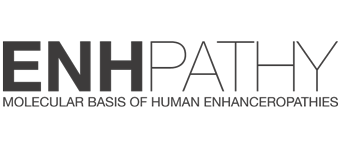Hi, I’m Veronica!
My curiosity for the mechanisms underlying human diseases led me to start a Bachelor Degree in Biomedical Laboratory techniques (Unimi, Milan), which offered me the opportunity to do a two-years internship at the Metabolic Diseases Research Lab (Policlinico Hospital, Milan), where I acquired hands-on experience on molecular biology and CRISPR-cas9 gene editing working side-by-side with passionate scientists. There, I came across the challenges the analysis of biological data encompasses and I realized how important interdisciplinarity is for research.
So, I decided to do a Master’s in Bioinformatics for Computational Genomics (Politecnico of Milan) to learn to implement computational strategies for the analysis of a broad range of data. For my thesis internship, I spent more than a year at the European Institute of Oncology (IEO, Milan) working on a pipeline for the analysis of Oxford Nanopore long reads from Acute Myeloid Leukemia cells at the bulk and single-cell level.
Today, I’m ecstatic to be part of the ENHPATHY team. I consider this innovative program an invaluable chance for me to learn new skills to apply to my research while getting in touch with some of the best professionals in this field and other passionate young researchers.
Besides research, I love cooking traditional Italian recipes.

![]() This project has received funding from the European Union’s Horizon 2020 research and innovation programme under the Marie Sklodowska-Curie grant agreement No 860002. The information contained in this website reflects only the authors’ view. REA and EC are not responsible for any use that may be made of this information.
This project has received funding from the European Union’s Horizon 2020 research and innovation programme under the Marie Sklodowska-Curie grant agreement No 860002. The information contained in this website reflects only the authors’ view. REA and EC are not responsible for any use that may be made of this information.
 Jorge Ferrer (Supervisor)
Jorge Ferrer (Supervisor)

